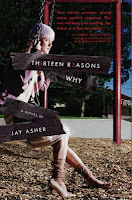 |
The hostess with the mostest.
Lin Oliver & Stephen Mooser rock. |
We'll be covering many gems from SCBWI LA later, but here are some pics and a few highlights from my incomplete notes from the sessions I attended (when I still had battery left in my computer.)
*Arthur Levine tells us to tap into the deepest needs we have as humans in order to create a timeless work.
*Tony Diterlizzi keeps objects from his youth nearby so he doesn't forget what it's like to be young.
 |
| A sea of amazing people |
*Jordan Brown wants writers to study the market to find the gaps. He's also drawn to people who are telling old stories in new ways, a younger version of an adult hit, a sports story that isn't just about the sport like Friday Night Lights, an alternate version of history "what if", or a darkly comic religious story.
*Sara Shepard worked writing for others before starting her own series, and learned how to write quickly and efficiently. The hands-on experience taught her more than her MFA. She also says that people love to read about seemingly good people doing bad things.
*Patricia MacLachlan reminds us to always remember that children experience life beside us-- not in front of or behind us.
 |
Chocolate makes listening even better.
Thank you Chuao!!!! |
*Emma Dryden says that the key so social media is that it's about relationships. Also, Twitter and Facebook are great for networking, but it's tough to reach kids that way.
* Dan Gutman tells us to break rules and just keep going. You're going to get rejected a lot. Be a boxer. Take your beatings and keep going.
* Karen Cushman suggests there must be production and repose. Discover the world through writing, and know who you are.
*The editor's panel wants you to read all you can, be wary of too much advice, be aware of the market, create what is authentically you, and don't be afraid to finish and get out there.
*Bryan Collier went to art school, got a day job, and spent the next seven years taking his portfolio in for review once a week to publishers whose work he liked.
* Jay Asher says that the key to suspense is anticipation. Anticipate more wise words from him coming soon!!!
*It took Clare Vanderpool 16 years to be published. Then she knocked it out of the park with a Newberry win. She says "discipline" doesn't count if you don't have to battle through screaming kids to write.
*Deborah Underwood talked about the need for quiet and pondering time in the creative process.
* Ari Lewin gave an inside scoop on what goes on in an acquisition meeting. They all need to love it, and then look at the P&L (profit and loss) statement to see if they can sell it. She highly encourages new writers to avoid going out too soon.
* Deborah Halverson gave an encouraging snapshot of the marketplace. Character-driven picture books (but less positive for first day of school, grass is always greener, or books lacking character development or voice). There is a lot of room for growth in chapter books and middle grade seems to be the sweet spot right now. Teen is still going strong (with ebook numbers still rising), but mid list is still struggling, and over trends are dying down. Realistic fiction is on the rise. Overall, there is room for debut authors, and agents find most clients at conferences.
 |
Ducked out to Thinkspace gallery &
saw this right after Ruta Sepetys
phenomenal keynote. Almost cried.
* Ruta Sepetys brought the house down by encouraging writers to go to the emotional places they really don't want to go. Stay a while, and go from participant to observer. For research, she went to a re-created Soviet prison, was beaten up, and had to face her savage side to write her award-winning novel. |
* At the agent's panel, they suggested things like: follow your own path, read a LOT of books, houses don't want books will compete with ones they already have, once a trend is identified it's too late, you will need to market yourself, be aware of book scan (tracks sales and will often determine whether or not they can sell your next book, make decisions based on having a long-term career -- not a quick sale, and have confidence when you write (it shows up on the page.)
 |
| Hippie Hop dancing with the (literary) stars! |
 |
| Having fun, but missing Triona |
* Tim Ditlow chatted candidly about Amazon taking on Marshall Cavendish, and how when considering who to take on, he wants to his as many key markets as possible: Institutional, Trade, ebook, & box stores. Books should work for all channels.
*Jennifer Bosworth is an introvert who believes that great publicity comes in all forms; you just need to be true to who you are. Her sincerity in the first video made a bigger splash than the uber-fancy super super cool trailer her director husband made so play to your strengths, and watch her videos. :)
* Gary Schmidt ended the conference beautifully with his keynote where he reminded us that "surprise is the only gift God gives us that he, himself, cannot experience," and that we have a great responsibility to our young readers to help anchor them in the truths of being good.
All in all, it was a phenomenal experience. Really inspiring.
 |
| Signing lines almost as long as bathroom lines :) |
 |
| Jay Asher |
 |
| Sara Sheppard |
 |
| Jennifer Bosworth |














































